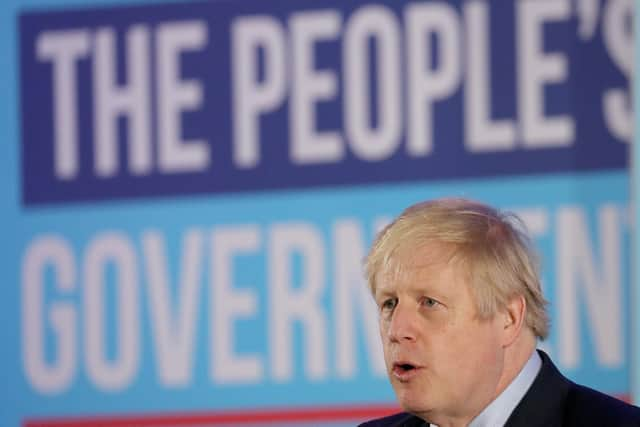We can rebuild confidence in our damaged democracy - David Blunkett
To state the blindingly obvious, we don’t live “in normal times”. We haven’t done so for a long period, and it’s hard to pinpoint when norms of behaviour in public life were turned on their head; when “fake news” became the “truth”, and when facts began to be sneered at as the prerogative of “losers”.
From the run up to the referendum on our remaining in the European Union through to this week’s revelations, concerns about the very essence of our democracy have grown. Good people have tolerated the intolerable. Normally honest people were prepared to obfuscate and, too often, lie in order to save the skin of Boris Johnson.


Advertisement
Hide AdAdvertisement
Hide AdIt’s hard to get rational answers, but I can only presume that it was a moment of madness that lasted far, far too long.
It took Conservative Cabinet Ministers – in fact half the government – an extraordinary length of time to reach the same conclusion that at least 60 per cent of the British people came to long ago. It took the threat to their own survival and political power to get them to stand up and be counted.
Only when it was impossible to fill those ministerial posts, and therefore lead a functioning government, did Boris Johnson eventually – kicking and screaming – agree to resign from Conservative Party leadership on Thursday morning.
The question still remains: what was the tipping point that led to that resignation? It’s a damn good question, because it wasn’t “partygate”, and those incidents of sending people onto television and radio, only for them to find that they had been provided with duff ammunition and a string of untruths.
Advertisement
Hide AdAdvertisement
Hide AdIt wasn’t the catastrophic by-election defeats triggered by the unacceptable behaviour of several Conservative MPs; and, unbelievably, it wasn’t the dramatic resignations of the Chancellor, the Health Secretary and the many junior ministers in the 24 hours that followed.
There have been times in history when a Chancellor’s resignation didn’t bring down the Prime Minister. In very different circumstances, in January 1959, Peter Thorneycroft, the then Chancellor, and two of his junior ministers – one of whom was Enoch Powell – resigned within months of the pending general election, which Harold Macmillan’s Conservatives won hands down. Macmillan’s laid-back “little local difficulty” not only steadied the ship, but reinforced his own policy. But to coin a phrase, Boris Johnson is no Harold Macmillan.
Macmillan carried respect at a time when, at least publicly, probity and decency mattered.
One of the paradoxes of the moment is that we’ve never had more transparency in politics. What years ago, would regrettably have been tolerated, is no longer acceptable.
Advertisement
Hide AdAdvertisement
Hide AdI recently read the second volume of the diaries of Chips (Henry) Channon, brilliantly edited by Simon Heffer.
Channon Senior (his son became a Conservative MP as well), was a bag carrier and general creep in the late 1930s and into the Second World War. Leaving aside his defeatist, anti-Semitic and neofascist sympathies, his private behaviour alone would today have made the recent revelations of MPs’ behaviour pale into insignificance.
Yet, outside a small, genuine leadership group, which included Winston Churchill, Clem Attlee, Ernest Bevin and Neville Chamberlain, his sexual promiscuity, not to mention his financial wheeling and dealing, did not even raise an eyebrow.
Of course, in both public and private life, people sometimes make mistakes, I know I did. But I sincerely believe that standards, more generally, are higher than they’ve been in our modern, democratic history. That is why the disastrous decline in standards at the very top of politics is of such pain and concern.
Advertisement
Hide AdAdvertisement
Hide AdHowever, whilst we despair about what is happening to our democracy, and those espousing to be leaders, we must not lose sight of two things.
The first is that our democratic strength lies in being able to root out and set aside the unacceptable and undoubted mistakes of the recent past.
The second is to have faith in those who, frankly, went along with the antics, the lifestyle and “political” appeal of Boris Johnson, but who have, at last, called it out. I am talking, here, about the electorate. But there is one, small group of electors who will now carry the most enormous responsibility. They are the aging and overwhelmingly right-wing and backward-looking members of the Conservative Party. Can we trust them to get it right this time?
Lord Blunkett, from Sheffield, was a key member for the New Labour cabinet and now sits in the House of Lords.
